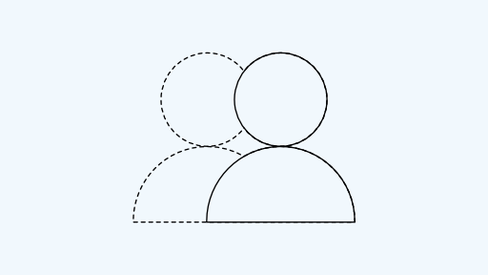Our portfolio includes the following services:
Change Management
- Analyze the initial situation and set up change processes: We take a close look at existing structures and processes and identify where changes are needed. We then set up targeted change processes.
- Develop strategies and plan communication: We work closely with you to develop a clear and practicable strategy for change management and design effective communication strategies. In doing so, we formulate concise change messages to inform and involve all stakeholders.
- Set up a change management office (CMO) and change agents network: We establish a change management office and set up a network of change agents to promote and manage the change process across the company.
- Manage stakeholders, set up and implement change monitoring: We actively manage stakeholder relationships and build a monitoring system that oversees and evaluates change efforts to measure progress and make timely adjustments.
- Review success and adjust strategies: We conduct regular evaluations to ensure the success of the change measures and adjust strategies as needed.
Transformation
- Develop a clear vision and describe transformation paths: We support you methodically in developing an inspiring vision and a clear target image and proceed to describe detailed paths to bring this vision to life.
- Build transformation architecture and identify key roles: We create an effective transformation architecture that integrates technology, processes and people. In doing so, we gradually involve key roles in the transformation process and pave their way.
- Coach managers and scale innovations: We provide dedicated coaching for managers and support your company in scaling innovations to create lasting competitive advantages.
- Embed sustainability into the transformation process: We integrate sustainable practices and organizational development into the change process to meet the future demands of the market and society.
- Provide workshops and trainings: We develop and deliver workshops and trainings for employees to support your transformation. In addition, we introduce digital tools to facilitate and accelerate the process of transformation.
Good to know
Change management is an essential process in any organization that aims to manage change in a structured and effective way. It is not just about introducing new technologies or processes, but also about preparing and supporting people within the organization for these changes. Effective change management ensures that changes are implemented according to plan and with minimal resistance, supported by appropriate training, communication plans and strategies to promote acceptance.
In contrast to change management, which often focuses on incremental changes, transformation refers to radical, far-reaching changes that can affect the entire company. Transformation can be a response to changing market conditions, new technological opportunities or internal growth objectives. It often involves a redesign of business models, a fundamental change in corporate culture or a complete overhaul of operational processes and systems.
Although change management and transformation have different goals and approaches, they share some basic principles. Both require:
- Strategic planning: a clear vision and defined goals are essential to guide the process and achieve the desired outcomes.
- Stakeholder engagement: The active involvement and support of key people within the organization is critical to success.
- Communication: Open and continuous communication helps to minimize uncertainty and gain support for the change initiatives.
The main differences between these two approaches lie in their scope and depth:
- Scope: change management can focus on changes in a specific team, department or process, while a transformation is a holistic change that encompasses the entire organization.
- Depth: Change management aims to improve or replace existing processes without changing the basic structures. Transformation, on the other hand, often involves a fundamental overhaul of the organizational foundations.
These distinctions are important to understand the respective challenges and opportunities associated with each process. A company that successfully implements both change management and transformative projects can increase its adaptability and competitiveness in an ever-changing market environment.


